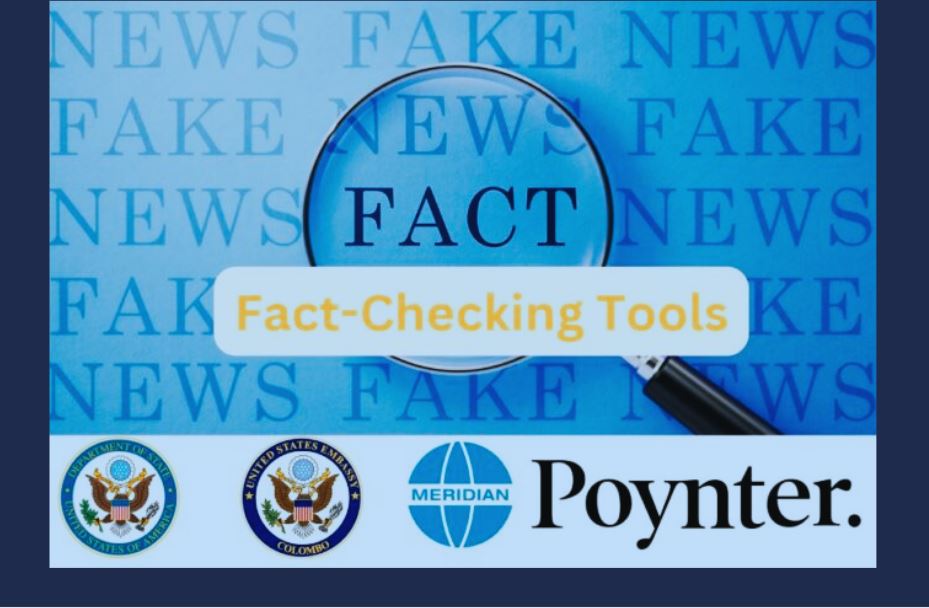Fact-Checking Tools To Help Stop Fake News
Meridian International Center implemented the South and Central Asian Reporting Tour with funding from the U.S. Department of State via the U.S. Embassy in Colombo. The program aimed to enhance the capacity of professional journalists and sustain citizen-generated media in South Asia. Ten journalists from Nepal, Bangladesh, India, and Sri Lanka participated in the program titled “SCA Reporting Tour: Disinformation, Ethics, and Credibility”.
During the tour, the journalists attended training sessions conducted by various media institutions, including The Poynter Institute for Media Studies, Axios, Voice of America, RAND Corporation, IREX, and The Reporters’ Lab, Duke. The training sessions focused on topics such as disinformation, fake news, and deepfakes, identifying disinformation campaigns, and combating fake news and disinformation.
The South and Central Asian Reporting Tour helped equip participating journalists with essential skills and knowledge to recognize and tackle disinformation and uphold ethical reporting practices.
Fact-checking is an essential process in today’s digital age, as disinformation and misinformation can spread quickly and easily. While there are many tools available for fact-checking, it’s important to use critical thinking and research skills to ensure that information is accurate and based on evidence and facts.
In this article, we will discuss what we learned during “SCA Reporting Tour: Disinformation, Ethics, and Credibility.” About fact-checking, disinformation, and misinformation, and explore some of the tools that can be used for fact-checking.
Fact-checking is the process of verifying the accuracy of information and ensuring that it is based on evidence and facts. Disinformation is the deliberate spread of false or misleading information with the intention of deceiving people. Misinformation, on the other hand, is the dissemination of false or inaccurate information that is not necessarily done with malicious intent. Both disinformation and misinformation can cause harm by creating confusion, spreading fear, and inciting hatred.
Scanner.deepware.ai
Scanner.deepware.ai is another tool for image analysis that uses artificial intelligence to detect if an image has been manipulated. It can also detect if an image has been generated by a machine learning algorithm.
MapChecking
MapChecking is a crowd counting tool and an online tool that allows you to estimate the number of people standing in a given area. This tool is designed to assist fact-checkers in verifying and debunking political claims made during gatherings, marches, protests, and other events.
This tool can be particularly helpful, as it is common for politicians to misrepresent the number of people in attendance at May Day rallies and marches.
InVID & WeVerify
InVid is a free and open-source digital verification tool that helps users identify and analyze media content, including images and videos, to determine their authenticity and veracity.
InVid provides a range of features for verifying media content, such as reverse image and video search, magnification, and annotation tools. It also allows users to extract frames from a video and run them through reverse image search engines to identify their source and potential manipulations.
InVid also includes a set of plug-ins for popular web browsers, such as Chrome and Firefox, that allow users to quickly and easily verify media content from any webpage.
InVid is a powerful tool for fact-checkers, journalists, researchers, and other professionals who need to verify the authenticity and veracity of media content in the age of digital manipulation and misinformation.
https://www.invid-project.eu/tools-and-services/invid-verification-plugin/
https://weverify.eu/verification-plugin/
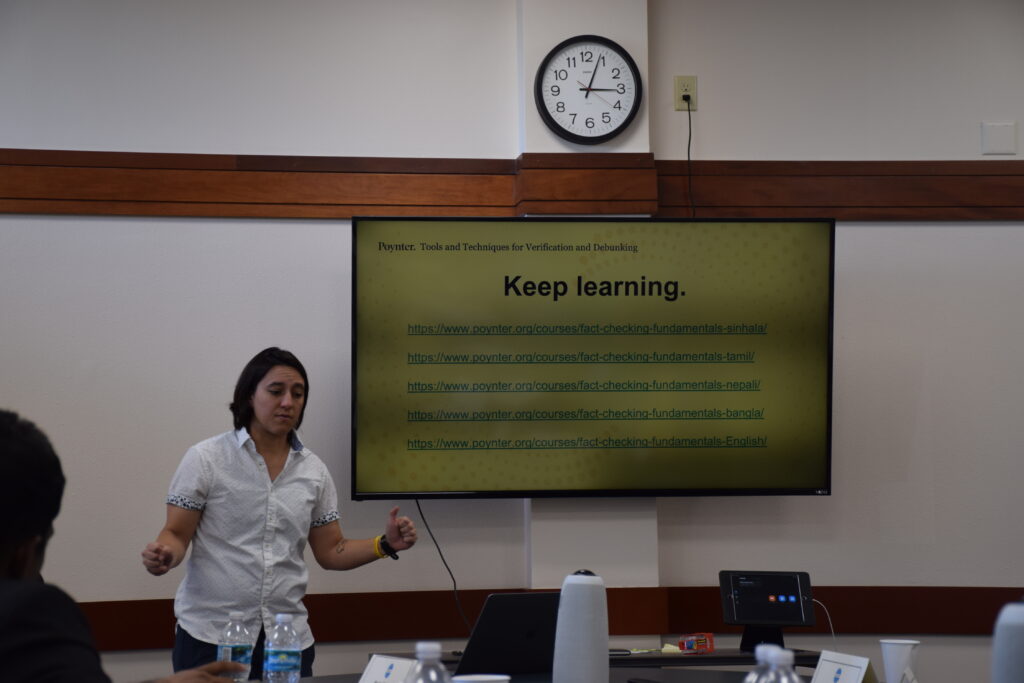
The Internet Archive
The Internet Archive is a non-profit digital library that provides free access to billions of digital materials, including websites, books, movies, music, and more.
Internet Archive offers access to a wide range of digital materials, including digitized books, movies, and audio recordings, as well as collections of software, images, and archived television news broadcasts.
It is an invaluable resource for fact-checkers, journalists, researchers, historians, and anyone interested in exploring the history of the internet and digital media.
Wayback Machine
Wayback Machine is a digital archive of the internet that allows users to see how websites looked and what content was available at different points in time. This can be useful for verifying the accuracy of claims made on websites that may have been edited or deleted.
Deep Web
The deep web refers to parts of the World Wide Web that are not indexed by standard search engines like Google and Bing.
Fotoforensics
Fotoforensics.com is a website that provides image analysis tools, including the ability to detect if an image has been manipulated or edited. Users can upload an image, and the tool will analyze the image and provide information about any modifications that have been made.
Hoaxy
Hoaxy is a web-based tool developed to helps users visualize and track the spread of online misinformation and rumors. Hoaxy analyzes and maps the spread of information across Twitter, showing how false information and conspiracy theories can gain traction and reach a wider audience through retweets and mentions. The tool can help fact-checkers, journalists, researchers, and concerned citizens better understand how false information spreads and identify sources of misinformation.
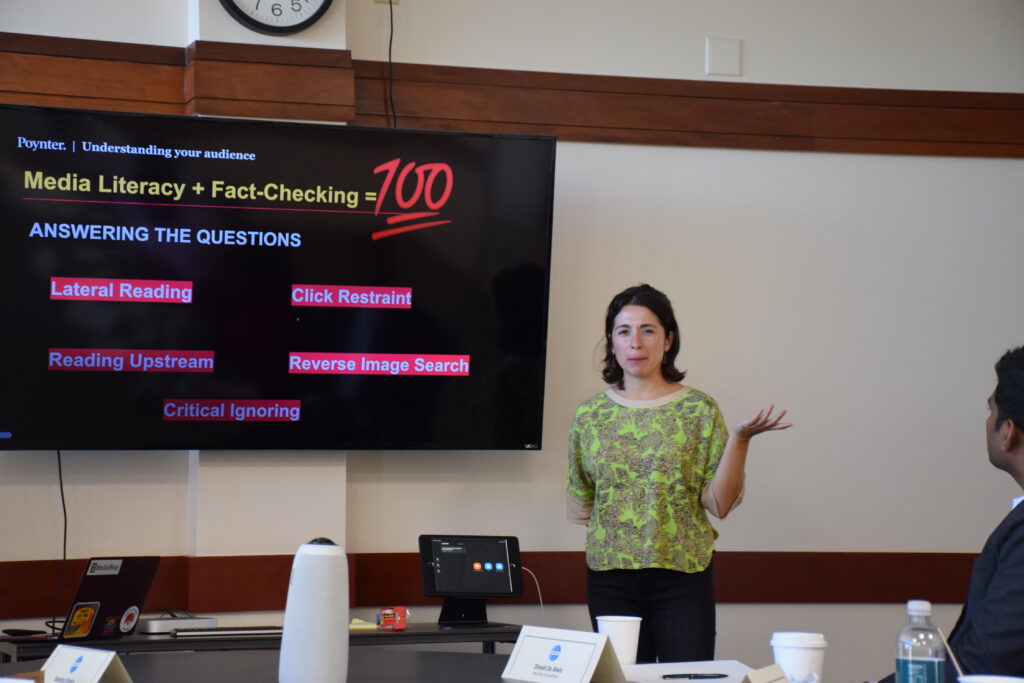
Google Fact Check Explorer
One of the tools that can be used for fact-checking is the Google Fact Check Explorer. This tool helps to find fact-checking articles from reputable sources around the world. Users can search for articles related to a specific topic, and the tool will return a list of fact-checks along with the publisher, date, and verdict of the fact-check.
https://toolbox.google.com/factcheck/explorer
Advanced Google search
Advanced Google search can help users save time and find the exact information they need by narrowing down search results to the most relevant pages.
With Advanced Google search, users can search for specific file types, languages, and domains, search within a specific time range, and even find pages similar to a specific web page. It also allows users to filter search results by reading level, usage rights, and region.
https://www.google.com/advanced_search
TinEye Reverse Image Search
Another tool for fact-checking is the TinEye Reverse Image Search. This tool allows users to search for images and find out where they originated from. It can be used to verify the authenticity of images and to detect if an image has been doctored or manipulated.
Google Reverse Image Search
Google Reverse Image Search is a feature provided by Google that allows users to search for images on the Internet by using an existing image as the search query. Users can upload an image or link to the Google Reverse Image Search engine and Google will return a list of visually similar images, as well as web pages that contain the image or related images.
This feature can be useful for a variety of purposes, such as identifying the source or creator of an image.
https://www.google.com/imghp?hl=EN
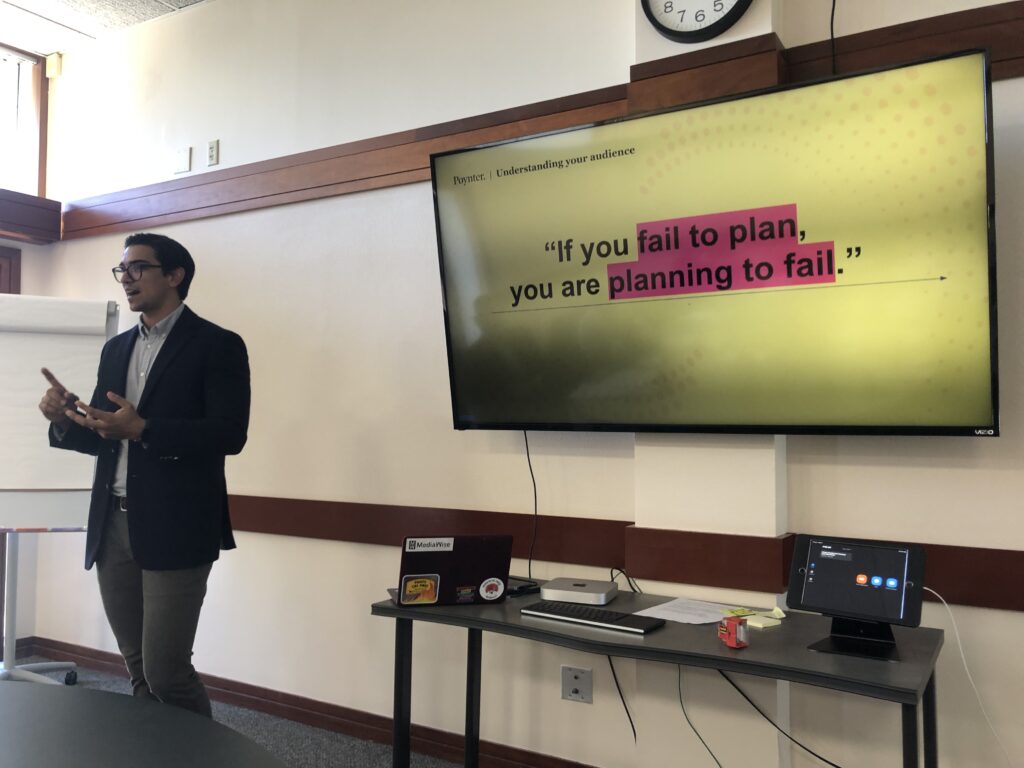
FollowerAudit
FollowerAudit is a fake Twitter followers checker, that allows users to identify Fake Twitter followers by analyzing the complete followers list of any Twitter account.
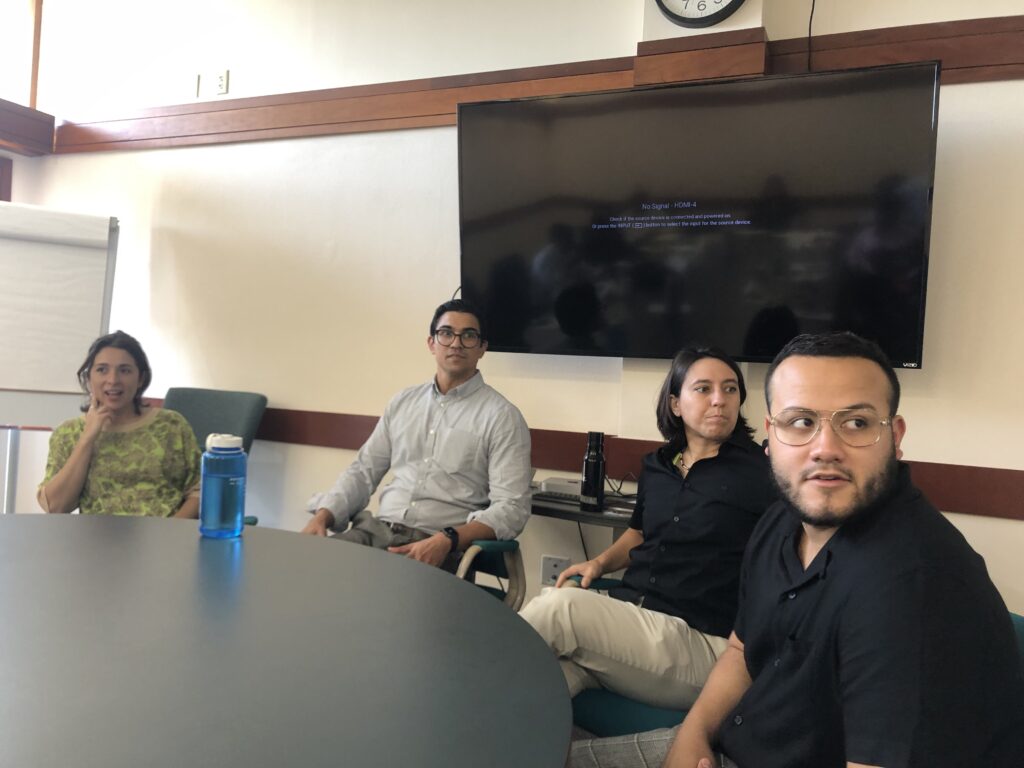
Fact-checking is crucial for journalists because it helps ensure the accuracy and credibility of their reporting. Journalists have a responsibility to report the truth, and fact-checking is an essential part of this process.
In today’s media environment, misinformation can spread rapidly, leading to confusion, panic, and mistrust. By undergoing training in fact-checking, journalists can be better equipped to identify and correct misinformation before it becomes widespread. By learning the methods and techniques of fact-checking, journalists can verify the information they receive and report only what is confirmed to be true.
Meridian International Center provides a range of resources and programs that can help journalists develop their skills, connect with other professionals in their field, and gain a deeper understanding of international issues.
(LankaXpress.com)

